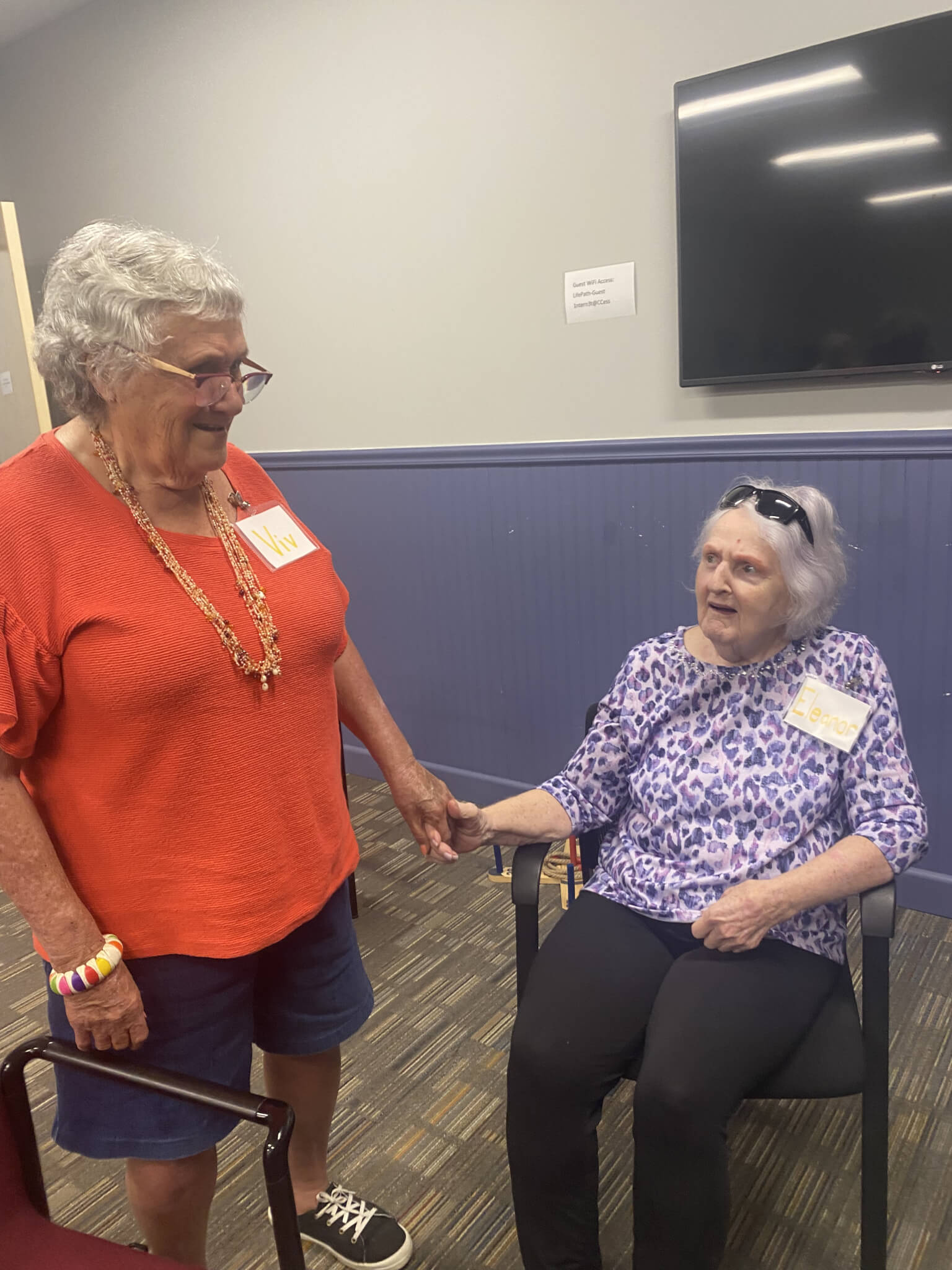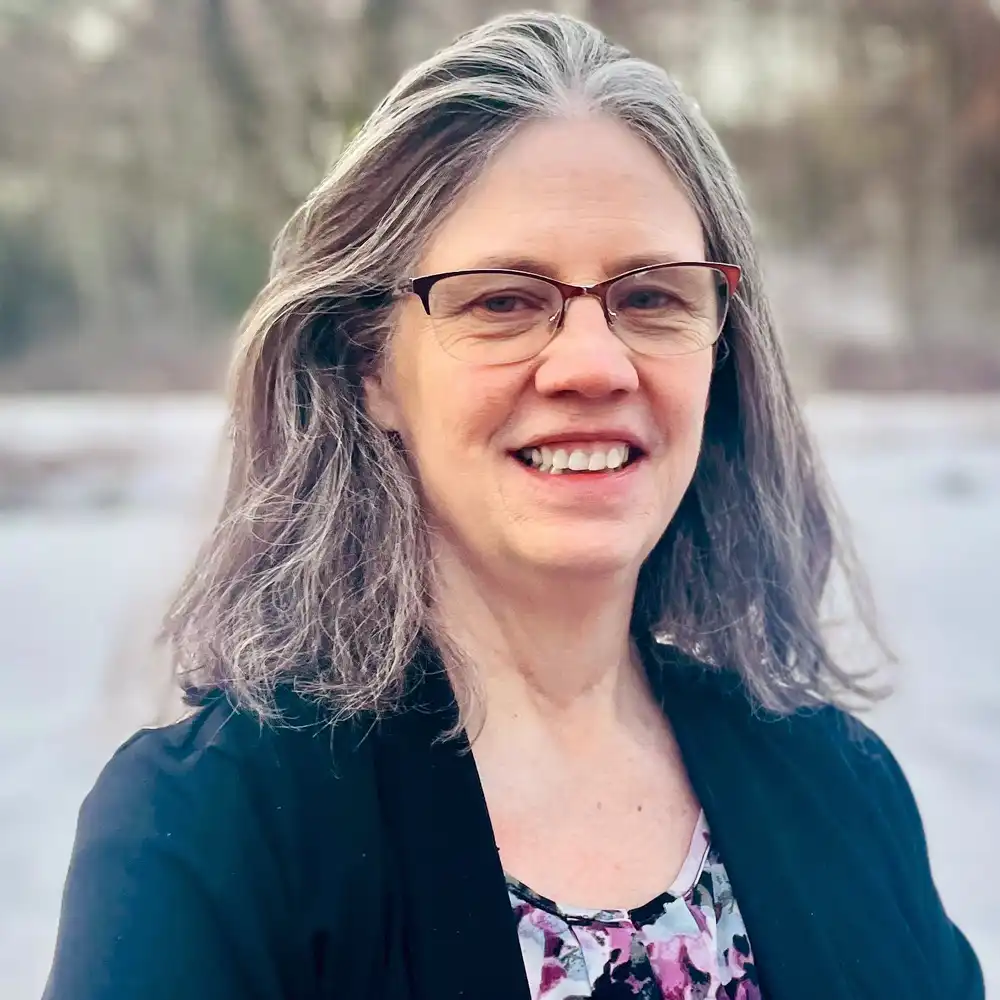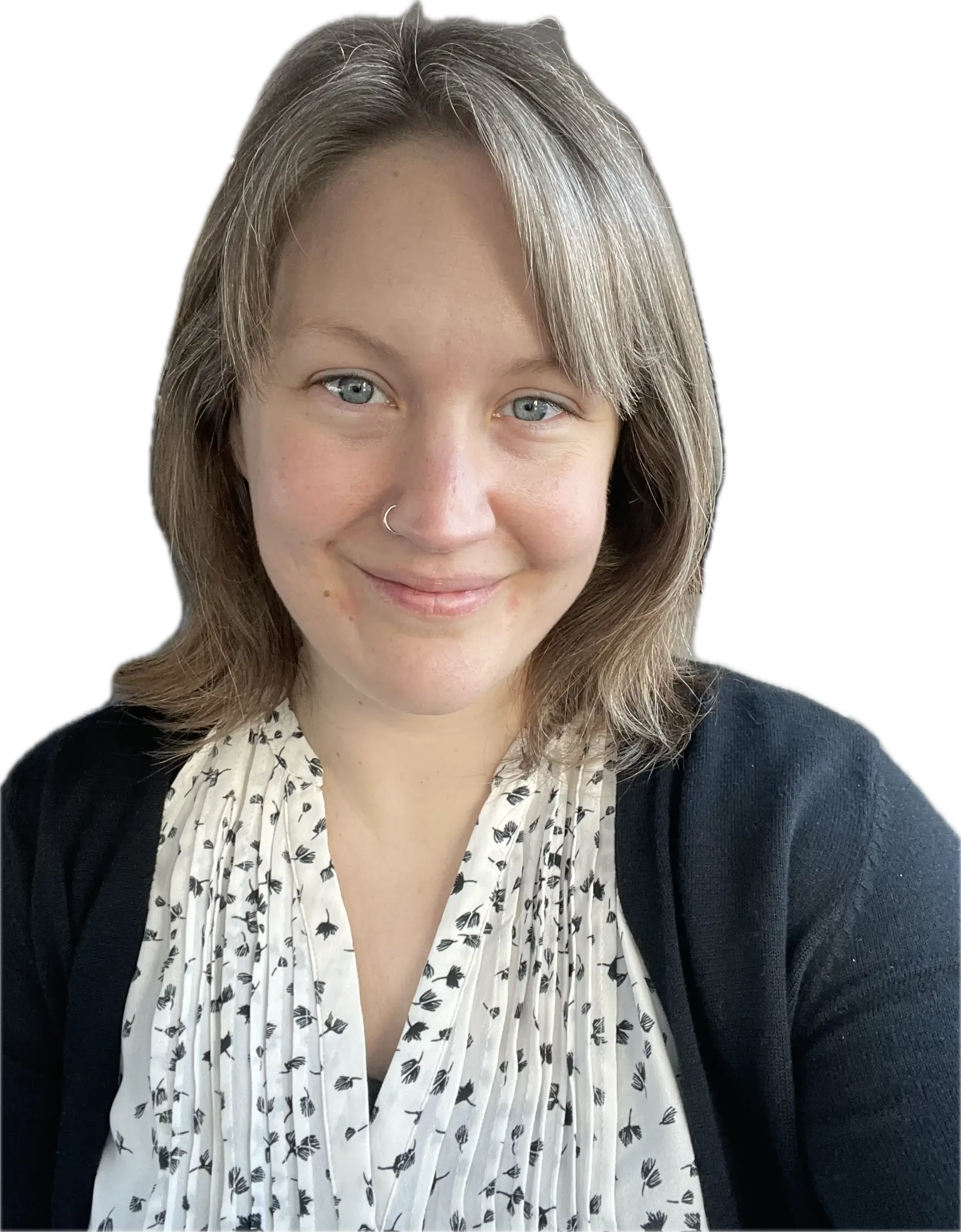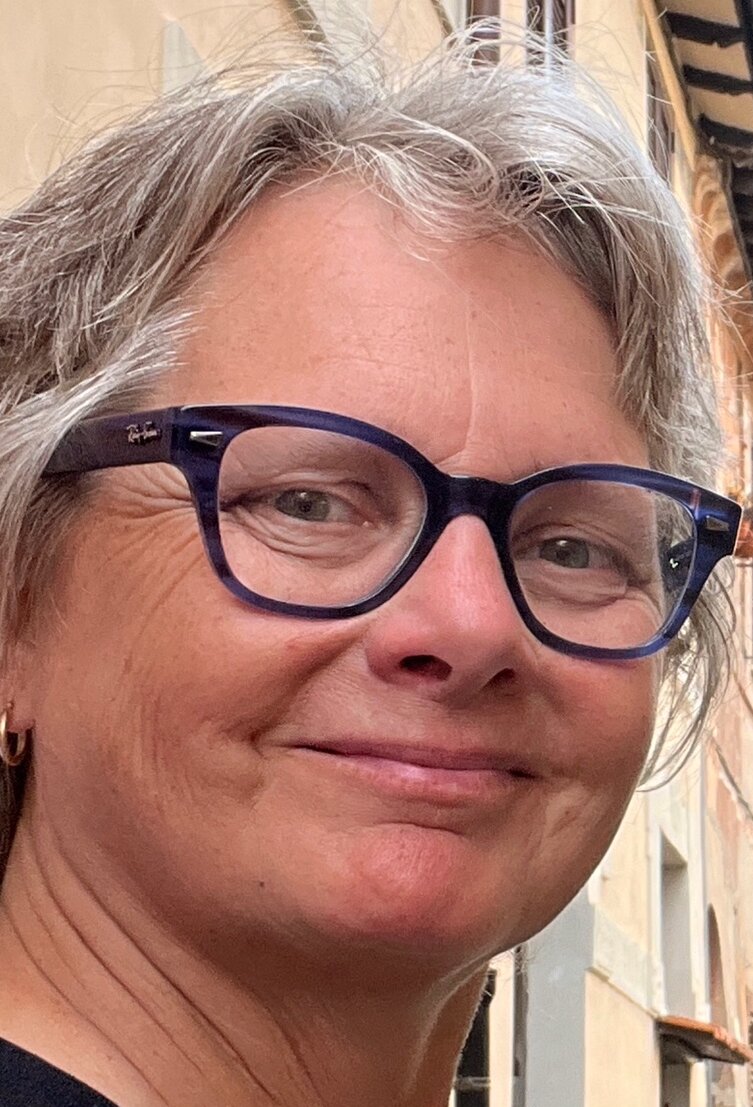Imagine starting your day with a big smile and a warm hug from a friend. Viviane, a woman of few words, fills the room with joy as she warmly welcomes the other ten people who come together twice a week to spend time together at the Community Engagement Center (CEC).
As people settle in around the big table with their favorite morning beverage, murmurs of conversations can be heard. Gordon opens the Greenfield Recorder to a photo of an eagle, sparking lively conversation about the recent sightings along the Deerfield River and how eagles return to the same nest year after year. David, who enjoys hiking and birdwatching, proudly announces that the bluebird house he made at the CEC now hosts a family of four baby birds.
Those who come to the CEC have varied and fascinating life stories—artist, potter, police officer, teachers, administrators, machinist, and even a crossword puzzle developer and a DJ. When asked what they like about coming to the CEC the answers are as diverse as the people. One man says, “It is a place to come with others and be here.” Another reflects, “It is a place where people are kind to each other. Where they accept that they can do different things and like different things. But you give it a try and you are kind.”
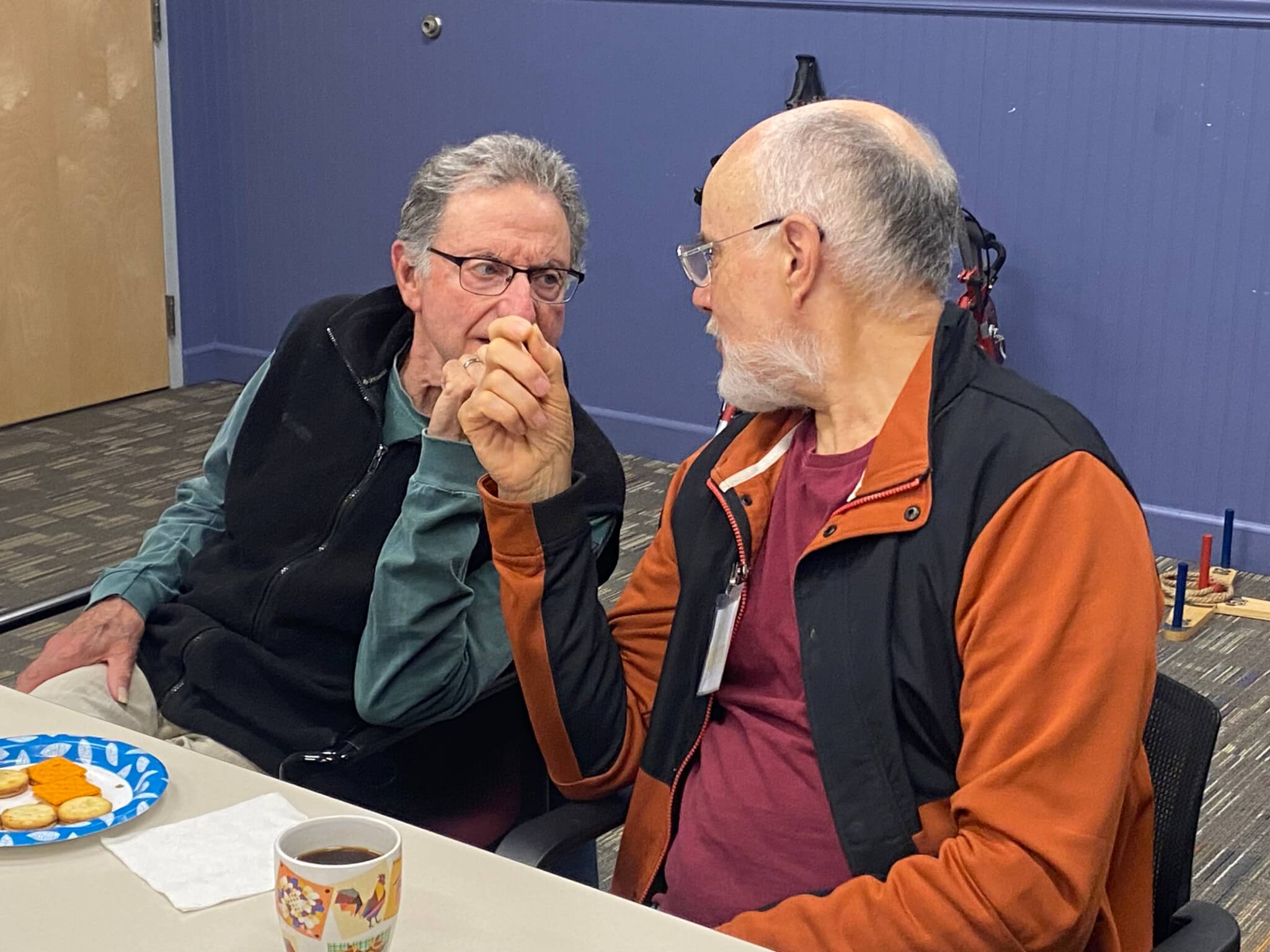
The CEC, a grant-funded program through LifePath, began in early November and recently moved to a more spacious venue in Greenfield located in the same complex as the agency’s main office. “We are excited about the new space,” said Donna Bigelow, Program Manager. “With the added room, we can create different activity centers and tailor programming to the varied interests and ability levels.” Most participants at the CEC are coping with memory loss related to dementia, a condition that can lead to unpredictable day-to-day experiences. One moment a participant may be talking about color contrast and giving tips on a piece of artwork, and in the next moment he may be looking for keys to get to a job he hasn’t had for years. “At the CEC, we strive to create a caring, predictable environment that stimulates and engages participants through meaningful activities,” explains Bigelow. “What makes it all work is the care and compassion extended by staff, volunteers, and the participants themselves.”
Bigelow meets with potential participants and their families to evaluate the fit for the CEC. Participants must independently manage basic needs such as eating, ambulating, and toileting with minimal assistance. Physical and cognitive abilities vary greatly. The new location has a room that can accommodate individuals who can benefit from socialization but who may need periods of rest with low stimulation.
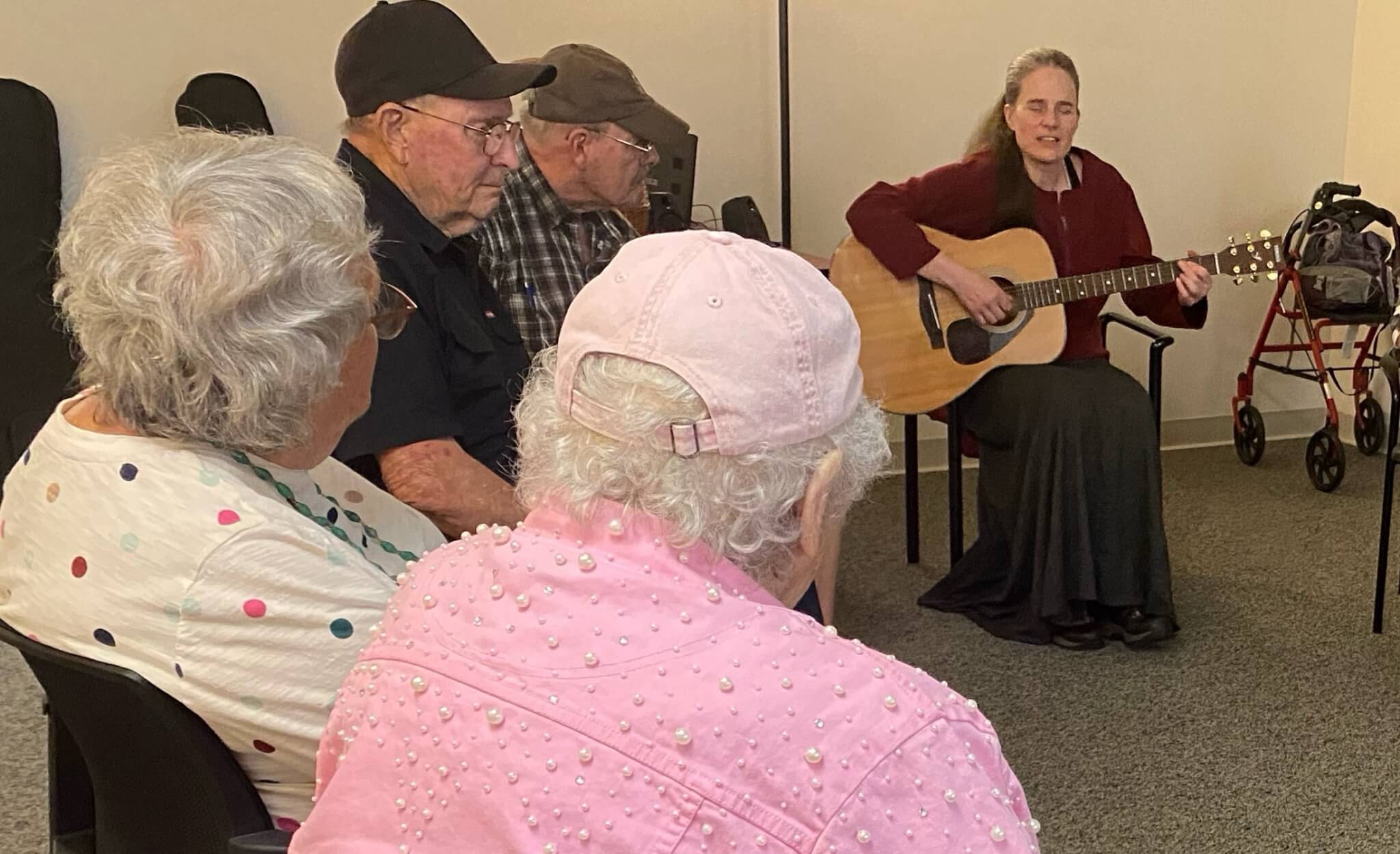
Caregivers also greatly benefit from the break the CEC provides them to run errands, attend appointments, or simply take time to breathe. One caregiver describes the CEC as a “godsend” while another appreciates the opportunity to have lunch with their sister “without moving the planet.” The CEC offers more than a break for caregivers—it expands their network of support and it creates connections to remind them they are not alone.
In the larger space, the CEC seeks to incorporate more intergenerational activities and welcomes additional volunteers to share their talents, time, and treasures. Whether it’s a one-time activity or a weekly game session, volunteers enrich the lives of participants and have a ripple effect on caregivers, friends, and our community as a whole.
Donations of materials to support ongoing projects are welcomed, with a regularly updated list available here.
If you have a loved one who could benefit from the program, or if you would like to learn more about volunteering at the CEC, please call the Information and Caregiver Resource Center at 413-773-5555 or visit our website.

